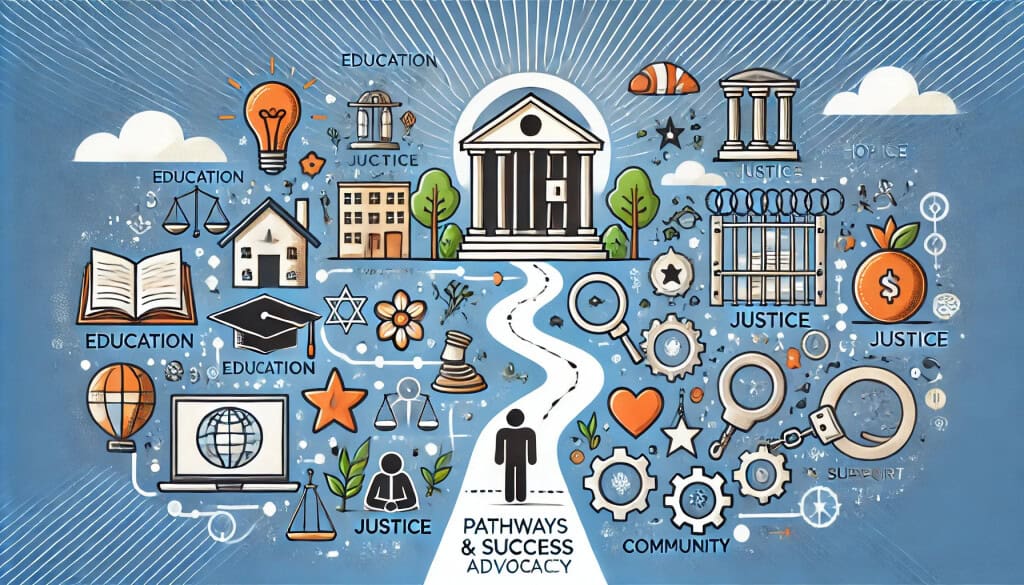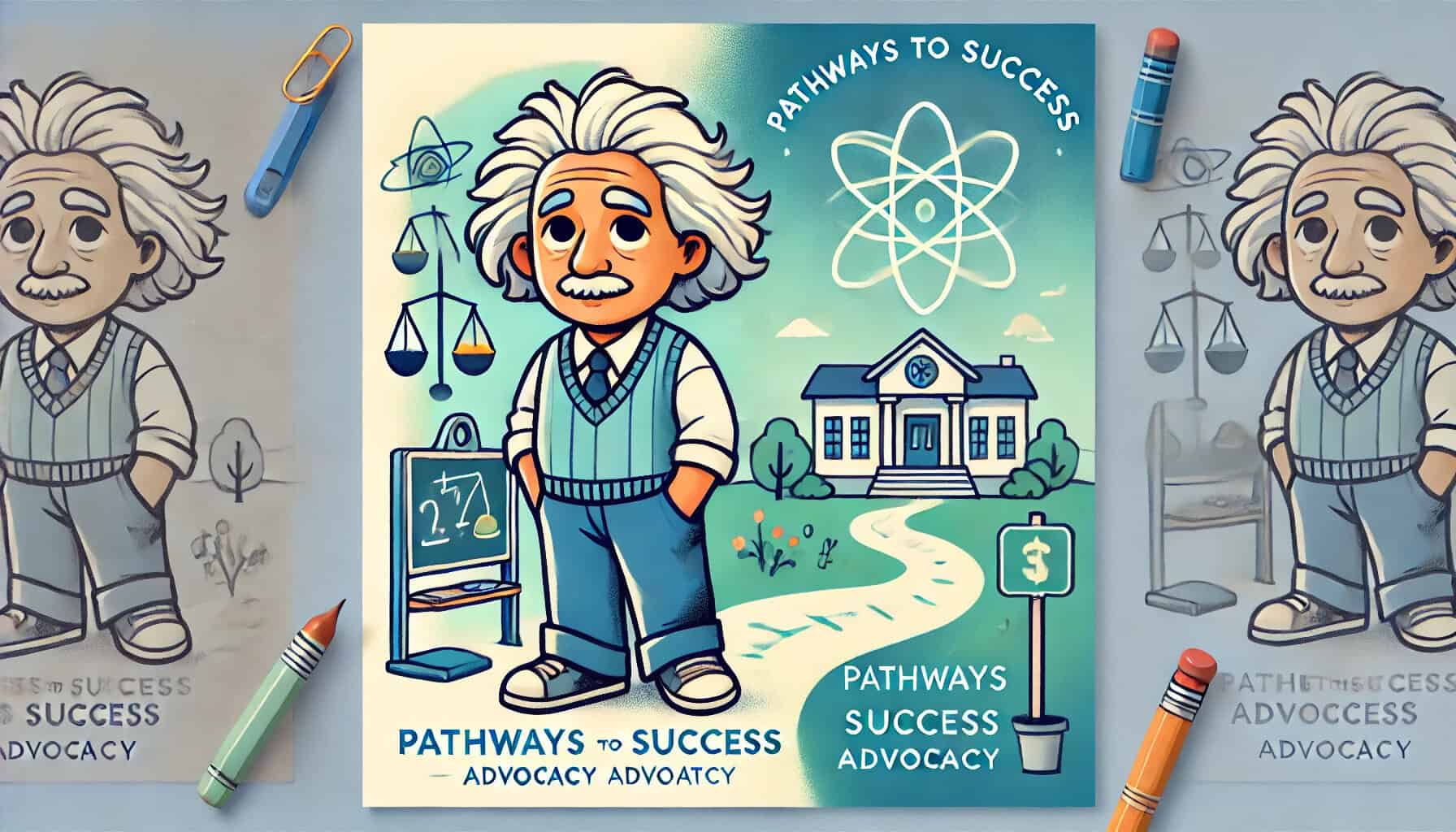Why Listen to Einstein?
Albert Einstein, best known as the genius who transformed physics, also possessed profound insights into overcoming adversity and living meaningfully. Einstein’s life wasn’t always easy—he struggled academically, faced skepticism, and lived through turbulent times. Yet his wisdom remains universally relevant, especially for those facing incarceration or supporting loved ones behind bars. His life lessons provide clarity, hope, and strength for navigating difficult circumstances.
1. Don’t Overthink the Future
Einstein said: “I never think of the future. It comes soon enough.”
Families and prisoners often face immense stress worrying about what tomorrow may bring—court dates, parole hearings, or reintegration into society. Einstein advises us to embrace the present and avoid excessive worry.
Practical Tip:
• Begin each day by focusing on tasks you can control, practicing mindfulness, or keeping a journal to ground your thoughts and alleviate anxiety.
2. Dare to Think Big
Einstein said: “I believe bold speculation will take us further than the mere accumulation of facts.”
Incarceration doesn’t have to limit ambition. Einstein encouraged dreaming boldly, believing in your capacity to transform your life despite challenging conditions.
Practical Tip:
• Write down your goals and dreams, no matter how ambitious. Visualizing a positive future can motivate and inspire meaningful change.
3. Keep Moving Forward
Einstein said: “Life is like riding a bicycle. To keep your balance, you must keep moving.”
Consistent, small actions can lead to significant progress. For prisoners and families alike, maintaining forward momentum—even in tiny steps—is essential.
Practical Tip:
• Set daily achievable goals such as reading a chapter of a book, writing letters, or participating in an educational program.
4. Understanding Human Nature
When asked why humanity struggles with political issues despite scientific advances, Einstein replied, “Because politics is more difficult than physics.”
Navigating human relationships, particularly within prison environments, requires emotional intelligence, patience, and empathy.
Practical Tip:
• Learn conflict resolution techniques and practice active listening. Engage with others constructively to manage disagreements peacefully.
5. Embrace Simplicity
Einstein favored “Einstein’s Razor”—removing unnecessary complexities and keeping what truly matters.
In prison, simplifying life might involve eliminating negative influences or unhealthy habits to focus on essentials like mental health and education.
Practical Tip:
• Develop a simple, daily routine that includes educational activities, exercise, and relaxation practices to structure your day positively.
6. Real Education Empowers
Einstein said: “The aim of education should be to train minds to think, not to memorize facts.”
Education in prison can offer profound empowerment beyond just earning credentials—it can reshape how you think and approach life.
Practical Tip:
• Enroll in educational programs available at your facility, from GED classes to vocational training, and fully engage with the materials to enhance critical thinking skills.
7. Unity and Empathy
Einstein said: “All religions, arts, and sciences are branches of the same tree.”
Building connections within prison communities and among affected families strengthens resilience and support networks.
Practical Tip:
• Participate in peer support groups or join interest-based groups like book clubs or meditation circles to foster empathy and community.
8. Integrity and Personal Conscience
Einstein said: “Never do anything against your conscience, even if the state demands it.”
Maintaining integrity in challenging environments requires courage and strength of character.
Practical Tip:
• Regularly reflect on your core values. Consider how your daily actions align with these principles, and seek support from trusted mentors or counselors to remain true to yourself.
9. Perspective Changes Everything
Einstein humorously explained relativity as, “Sit with a pretty girl for two hours and it feels like two minutes. Sit on a hot stove for two minutes and it feels like two hours—that’s relativity.”
Shifting perspectives can greatly impact mental health, coping mechanisms, and relationship dynamics.
Practical Tip:
• Practice perspective-shifting exercises by journaling from another person’s viewpoint or reframing challenging situations positively.
Connecting with Families
These lessons apply equally to families outside prison walls. Reading Einstein’s biographies, discussing his insights, or sharing daily experiences inspired by these principles can help strengthen family bonds and mutual understanding during incarceration.
Further Resources and Reading
Consider these impactful resources to continue your journey:
• Einstein: His Life and Universe by Walter Isaacson
• Who Moved My Cheese? by Spencer Johnson
• Man’s Search for Meaning by Viktor Frankl
• Prison education resources available at your institution
Conclusion: Empower Yourself, Empower Your Future
Einstein’s teachings remind us that our response to life’s challenges defines our future. Regardless of circumstances, each person has the power to choose growth, integrity, and optimism. Prison can be a transformative moment if approached with intention and determination. As one prison college graduate said, “Education gave me back my self-worth and a future to work toward”—a freedom no walls can confine.
Let Einstein’s wisdom inspire your path forward. Remember, you hold the potential to change your narrative, cultivate resilience, and build a brighter future.
About Pathways to Success and Georgia Prisoners Speak (GPS)

At Georgia Prisoners Speak (GPS), we believe that education is one of the most powerful tools for breaking cycles of incarceration and building a better future. That’s why we created the Pathways to Success program—a dedicated initiative providing educational resources, skill-building guides, and financial literacy tools tailored specifically for prisoners and their families.
GPS is a prison reform advocacy platform focused on exposing systemic injustices, pushing for policy change, and empowering incarcerated individuals with the knowledge they need to successfully re-enter society. Our educational articles are part of this mission, ensuring that those impacted by incarceration have access to practical guidance that can help them build stability, opportunity, and financial independence.
To explore more resources, visit Pathways to Success.


1 thought on “9 Life-Changing Lessons from Albert Einstein: Timeless Wisdom for Prisoners and Families”